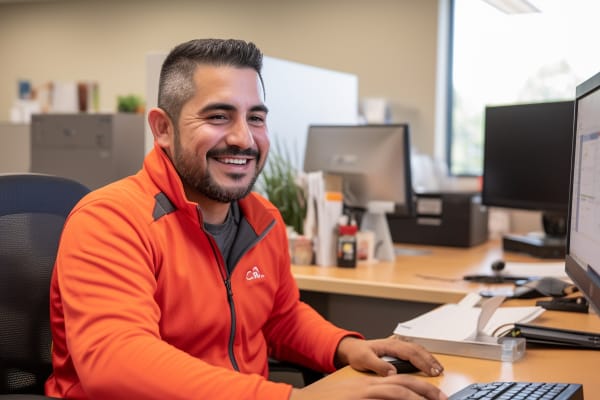Introduction
If you’ve ever sat down at your computer, scratching your head and wondering how to start coding for beginners, you’re part of a vast community of aspiring coders. Every day, countless individuals make the decision to start learning computer code, fueled by various motivations like career change, problem-solving, or creating something new. It’s an understandable query. With the digital age booming, learning how to code has become not just a specialty skill but an essential literacy. This blog serves as a comprehensive roadmap aimed at teaching you where to start with coding. In the subsequent segments, we will delve into the fascinating history of programming languages, unravel tips for beginner programming, and explore a plethora of resources that can assist you on your voyage through the coding universe.
A Brief History of Programming Languages
Starting your coding journey begins with understanding its roots. Over the years, the landscape of programming languages has evolved significantly, transitioning from the rudimentary binary languages used in early computing systems to assembly languages and then to high-level languages that we commonly use today like Python, JavaScript, and C++. The way we engage in writing code for beginners has been transformed, influenced by technological advancements, community contributions, and the ever-changing requirements of the industry.

Lock In Our Lowest Price Ever For Only $14.99 Monthly Access
Your career in information technology last for years. Technology changes rapidly. An ITU Online IT Training subscription offers you flexible and affordable IT training. With our IT training at your fingertips, your career opportunities are never ending as you grow your skills.
Plus, start today and get 10 free days with no obligation.
The First Programming Languages
The history of programming languages goes back to the 1950s, with the development of early languages like FORTRAN and LISP [1]. These languages were primarily designed to perform scientific calculations and artificial intelligence tasks. Although not directly relatable to today’s query on how to learn coding for beginners, the birth of these languages laid the foundation for what we now consider modern programming.
The Advent of High-Level Languages
The term “high-level language” refers to languages like Python, Java, and JavaScript, which are more user-friendly and easier to read than low-level languages like assembly. High-level languages opened doors for more people to learn programming, as they were easier to pick up compared to their low-level counterparts. If you’re a beginner coding enthusiast, high-level languages are probably where you’ll want to start.
What is a Programming Language?
In the context of answering the question, “how to start coding for beginners,” understanding what a programming language actually is becomes critical. Simply put, a programming language is a structured set of instructions that enables humans to communicate with computers. These instructions, when executed, produce various kinds of outputs ranging from software applications to algorithms. Programming languages are the backbone of software development and data management.
The Anatomy of a Programming Language
Programming languages are typically comprised of syntax and semantics. Syntax refers to the set of rules and symbols used to write the code. Semantics is the meaning behind these sets of rules. Learning to code for beginners often starts with understanding the syntax, before diving deeper into semantics and logic.
The Functionality of Programming Languages
Programming languages serve multiple functions. They are instrumental in implementing algorithms, manipulating data, and building software applications and systems. They even provide the infrastructure for more advanced fields like machine learning and data science. If you’re pondering where to start learning programming, understanding the multi-faceted roles that programming languages play in our digital world is a good point of departure.
Why Learn Programming?
The decision to embark on a journey of learning how to code offers myriad benefits, many of which extend far beyond the realm of computer science. For beginners, coding can almost feel like acquiring a superpower. It opens doors to building your own software, analyzing vast swaths of data, or even solving complex, real-world problems. And these abilities aren’t confined to the digital world; they are transferable skills that can positively impact various areas of your life and work.

Lock In Our Lowest Price Ever For Only $14.99 Monthly Access
Your career in information technology last for years. Technology changes rapidly. An ITU Online IT Training subscription offers you flexible and affordable IT training. With our IT training at your fingertips, your career opportunities are never ending as you grow your skills.
Plus, start today and get 10 free days with no obligation.
The Power of Problem-Solving
One of the most compelling reasons to learn programming is the problem-solving skills you’ll acquire in the process. These skills aren’t just confined to debugging code or optimizing algorithms but extend to everyday challenges. Learning how to code teaches you how to approach problems methodically and break them down into manageable pieces, a skill that is invaluable in any profession.
The Universal Language of Technology
In today’s world, where technology permeates almost every aspect of our lives, coding has become the universal language. Regardless of your field—be it healthcare, finance, or even the arts—understanding the basics of programming can help you interact more effectively with the tech tools prevalent in your industry.
Identifying Your Goals and Needs
Before diving into tutorials and coding exercises, it’s crucial to determine what you hope to achieve through coding. Are you aiming to build a dynamic website, create a mobile app, or maybe design a video game? Or perhaps you’re looking to switch careers and enter the tech industry? Your goals will not only motivate you but also guide you in selecting the most relevant programming language and resources.
Tailoring Your Learning Path
Once you identify your objectives, you can tailor your learning path accordingly. If web development intrigues you, languages like HTML, CSS, and JavaScript should be your go-to. For game development, you might lean towards C# and Unity. Knowing what you want to achieve can save you time and direct your efforts more efficiently.
Can I Learn to Code?
If you’ve been hesitating to dive into the world of coding due to doubts about your ability to grasp it, push those fears aside. With a plethora of resources like online tutorials, coding bootcamps, and community forums, the barriers to entering the programming world have never been lower.
Age and Background are Not Barriers
One of the most frequent concerns is age. People often wonder if they are too old to start learning how to code. The answer is a resounding no. Coding is an age-agnostic skill; all that’s required is the enthusiasm to learn and the persistence to practice. Similarly, your educational background should not deter you. While a computer science degree can be helpful, it is by no means a prerequisite to becoming proficient in coding. Many self-taught programmers have gone on to have successful careers in the tech industry.
Self-Learning vs. Structured Learning
There’s no one-size-fits-all approach to learning programming. Some individuals thrive in structured environments like a college course or a coding bootcamp, while others prefer the flexibility of self-guided learning. Both pathways are valid and have their own sets of advantages and challenges. Choose the method that aligns with your lifestyle and learning preferences.
Choosing the Right Programming Language
The question of how to start coding for beginners inevitably leads to another crucial query: Which programming language should I learn first? With a variety of languages available, each with its own set of functionalities and use-cases, making this choice can be daunting. However, understanding your personal goals and the types of projects you’d like to work on can make this decision more straightforward.

Lock In Our Lowest Price Ever For Only $14.99 Monthly Access
Your career in information technology last for years. Technology changes rapidly. An ITU Online IT Training subscription offers you flexible and affordable IT training. With our IT training at your fingertips, your career opportunities are never ending as you grow your skills.
Plus, start today and get 10 free days with no obligation.
Understanding Language Versatility and Specialization
Each programming language has a specific area where it excels. For instance, if you’re inclined toward web development, HTML, CSS, and JavaScript are the pillars of the internet, and learning them is a must. On the other hand, if you’re looking into data analysis or machine learning, Python would be a more suitable choice due to its extensive libraries and community support.
Python for Beginners
Python is often lauded as an excellent starting point for beginner programming. Known for its readability and simplistic syntax, Python is incredibly user-friendly and versatile, making it a strong choice for a wide range of projects—from web development to data analysis and even artificial intelligence.
JavaScript for Web Development
If your focus is solely on web development, JavaScript is practically indispensable. Not only does it enable you to add interactivity to websites, but its asynchronous capabilities make it ideal for creating dynamic, responsive web applications. With the rise of Node.js, JavaScript can also be used for server-side development, further broadening its utility.
Where to Start with Coding: Python, JavaScript, or Something Else?
When pondering where to start with coding, you’ll likely come across several suggestions. Python is a versatile and beginner-friendly choice, especially if you’re interested in a language that can be applied to various types of projects. JavaScript is indispensable for anyone looking to specialize in web development. However, other languages like Java and C++ have their own benefits and ideal applications. Java, for instance, is highly portable and widely used in enterprise settings, while C++ is known for its performance efficiency and is commonly used in system/software development.
Resources for Learning How to Code
Once you’ve decided on a programming language, the next step in your journey of learning how to code for beginners is to find the right resources that suit your learning style and needs.
Online Courses and Platforms
There’s a multitude of online platforms offering coding courses tailored for beginners. Websites like Codecademy, Udemy, and freeCodeCamp are great places to start. These platforms provide interactive lessons, quizzes, and projects that help solidify your understanding of programming concepts.
Books and Written Guides
If you prefer a more traditional approach to learning, there are numerous books and written guides aimed at teaching coding for beginners. These range from books that teach programming fundamentals to more specialized guides focused on a particular language or technology.
Community Support and Networking
Learning how to code doesn’t have to be a solitary endeavor. Online forums, coding bootcamps, and local meetups offer community support and networking opportunities. Engaging with a community can provide additional motivation, clarify doubts, and even open doors to career opportunities.
Teach Yourself How to Code
The notion that you need a formal education to learn coding is outdated. In this digital age, self-learning has become a viable and often effective route for acquiring coding skills. If you’re wondering how to teach yourself coding, you’ll be pleased to know that there are various resources at your disposal.

Lock In Our Lowest Price Ever For Only $14.99 Monthly Access
Your career in information technology last for years. Technology changes rapidly. An ITU Online IT Training subscription offers you flexible and affordable IT training. With our IT training at your fingertips, your career opportunities are never ending as you grow your skills.
Plus, start today and get 10 free days with no obligation.
Free Online Resources
One of the most accessible ways to teach yourself how to code is through free online resources. Platforms like YouTube offer a plethora of tutorials that cover everything from the basics of programming languages to more specialized topics like web development or data analytics. The abundance of tutorials means you can find information tailored to your learning speed and style.
eBooks and Online Courses
Another avenue for learning programming on your own is through eBooks and online courses. Websites like Udemy and Coursera offer courses that range from beginner to advanced levels, giving you the flexibility to learn at your own pace. These courses are often designed by industry experts and include hands-on projects that provide practical experience.
Setting Up Your Environment
Before diving into writing your first lines of code, it’s essential to set up your coding environment. This initial step ensures that you have all the tools you’ll need to start coding and to run your programs successfully.
Installing Software Essentials
The basic setup for coding involves installing a few key pieces of software. Text editors like Notepad++ or Sublime Text are where you’ll write your code. Compilers, on the other hand, are necessary to translate your human-readable code into machine language.
Choosing an Integrated Development Environment (IDE)
For those who prefer a more cohesive setup, an Integrated Development Environment (IDE) may be a better choice. IDEs like Visual Studio Code or PyCharm integrate text editors, compilers, and other useful tools into a single platform. This makes it easier to write, debug, and compile your code, all within the same environment.
Writing Code for Beginners: Basic Setup
To get started with coding, you’ll typically need two main software components: a text editor and a compiler. These are the fundamental tools that allow you to write and run code.
Text Editors
Text editors are where you’ll spend a significant amount of time writing and editing your code. While simple text editors like Notepad are okay for very basic projects, you’ll likely want to upgrade to more advanced editors like Visual Studio Code, which offer features like syntax highlighting and auto-completion.

Lock In Our Lowest Price Ever For Only $14.99 Monthly Access
Your career in information technology last for years. Technology changes rapidly. An ITU Online IT Training subscription offers you flexible and affordable IT training. With our IT training at your fingertips, your career opportunities are never ending as you grow your skills.
Plus, start today and get 10 free days with no obligation.
Compilers and Interpreters
A compiler is a software that translates your written code into machine code that can be executed by your computer. Some programming languages, like Python, use interpreters instead of compilers. Interpreters execute your code line by line, making it easier to debug but often slower to run. Depending on the programming language you choose, you’ll need to install either a compiler or an interpreter.
Starting Your First Project
Embarking on your first coding project is a significant milestone in learning programming. It’s easy to feel overwhelmed with the variety of programming languages and project types, but the key is to start small and manageable. For those who are just entering the world of coding for beginners, a simple “Hello, World!” program is often the first task you’ll undertake.
Why Start with “Hello, World!”?
The “Hello, World!” program is a beginner coding staple across almost all programming languages. It serves as a simple test to ensure your coding environment is set up correctly and provides a straightforward introduction to the syntax of a new programming language. Completing this task is your first step into the vast universe of coding, signaling that you’re ready for more complex challenges.
Practical Tips and Best Practices
Learning to code is not just about understanding syntax or memorizing functions; it’s about solving problems and thinking logically. In that vein, to become proficient in coding, consistent practice trumps theoretical knowledge. Whether you’re keen on learning computer code or curious about where to start with coding, here are some practical tips.
Consistency Over Intensity
Rather than cramming an enormous amount of information in a short period, try to allocate specific times for coding throughout your week. Consistency will help you internalize what you’ve learned and apply it more effectively in different situations.
Solve Real Problems
Instead of just reading or watching tutorials, apply your knowledge by working on real-world projects. By teaching yourself coding through application, you’ll better understand the challenges and rewards of programming.
Where to Start Learning Programming: Online Challenges and Projects
Online platforms offer a variety of avenues for enhancing your coding skills. Websites like LeetCode, HackerRank, or Codewars provide a range of challenges that help you understand different algorithms and problem-solving techniques. Working on small, achievable projects like a to-do list app or a simple personal website can also bolster your confidence and give you practical experience.
Hands-on Learning
Projects like building a simple website or creating a calculator app not only help you apply what you’ve learned but also endow you with a sense of accomplishment. These projects make excellent additions to your portfolio and give you something concrete to discuss in job interviews or networking events.
How to Move Forward: The Next Steps
Once you’ve got the hang of the basics and are comfortable with beginner programming, you might start thinking about how to delve deeper. Learning a programming language thoroughly may involve various strategies, depending on your interests and needs.
Deepen Your Knowledge
One approach is to read more advanced books that delve into the intricacies of a programming language or tackle specialized subjects like data structures, algorithms, or machine learning.
Specialized Courses and Bootcamps
If you’re keen on accelerating your learning curve, consider enrolling in specialized courses or coding bootcamps. These intensive programs can offer a deep dive into specific areas of coding, like web development or data science, and often include hands-on projects that allow you to apply what you’ve learned.
Contributing to Open-Source Projects
Engaging with the coding community by contributing to open-source projects can offer real-world experience and make you part of a collaborative effort. It’s a fantastic way to gain new skills, understand how large projects are managed, and even improve your resume.
By following these strategies and resources, you’re setting yourself up for success in your coding journey. From mastering the basics to diving into specialized fields, each step you take enriches your understanding and skills in this increasingly vital area.

Lock In Our Lowest Price Ever For Only $14.99 Monthly Access
Your career in information technology last for years. Technology changes rapidly. An ITU Online IT Training subscription offers you flexible and affordable IT training. With our IT training at your fingertips, your career opportunities are never ending as you grow your skills.
Plus, start today and get 10 free days with no obligation.
Conclusion
If you’ve been contemplating how to start coding for beginners, we hope this comprehensive guide has given you a clear roadmap. It’s essential to remember that learning to program is a continuous process, not a destination. There are various paths you can take, from choosing the right programming language to diving into specialized courses or contributing to open-source projects. The journey to becoming proficient in coding is a marathon, not a sprint. Whether you want to learn coding for a career switch, personal projects, or simply to understand the digital world better, the resources and tips outlined here will help you take those crucial first steps. So, take your time, keep practicing, and above all, enjoy the process. Happy coding!
Frequently Asked Questions: How to Start Coding for Beginners
How Do I Choose the Right Programming Language When Starting Coding for Beginners?
Choosing the right programming language depends on your goals. If you’re looking to get into web development, HTML, CSS, and JavaScript are good starting points. For data science, Python is often recommended. If you’re unsure, many beginners start with Python due to its straightforward syntax and versatility.
What Resources Are Available for Learning How to Code for Beginners?
Numerous online platforms offer courses tailored for beginners. Websites like Codecademy, Udemy, and freeCodeCamp are excellent resources. Books, eBooks, and YouTube tutorials also provide a wealth of information for beginner coding.
How Much Time Does It Take to Learn Programming for Beginners?
The time it takes to learn programming varies from person to person and depends on how much time you can allocate to learning and practice. With consistent practice and using the right resources, you can grasp the basics in a few months. Becoming proficient, however, will take more time and practice.
Can I Teach Myself How to Start Coding?
Absolutely, self-learning is entirely possible when it comes to coding for beginners. A host of online resources are available for free or at a low cost, and communities like Stack Overflow and GitHub provide invaluable support. You can teach yourself coding at your own pace and according to your own schedule.
Do I Need a Computer Science Degree to Learn How to Start Coding for Beginners?
No, a computer science degree is not a requirement for learning how to code. While having a degree can provide a structured learning environment, many successful programmers are self-taught or have taken alternative educational routes like coding bootcamps.
By seeking answers to these questions, you’re already making progress on your coding journey. Remember, every programmer was a beginner at some point, and the key to progress is consistent practice and continuous learning.

























1 thought on “How to Start Coding for Beginners : Where to Start Learning Programming”
Aw, this was an extremely nice post. Taking a few minutes and actual
effort to generate a great article!